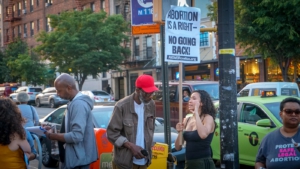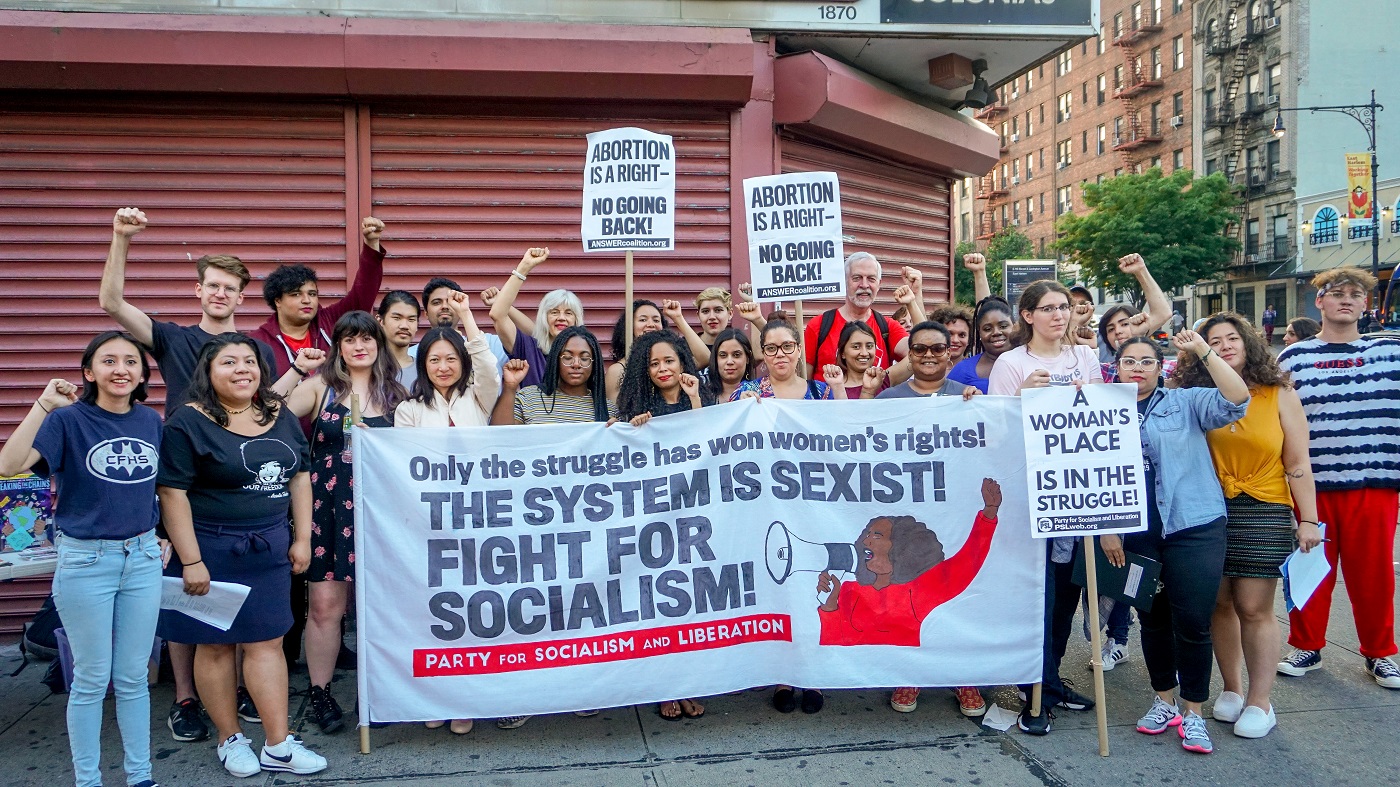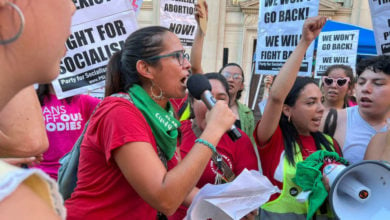
At the height of evening rush hour in New York City, members of the Party for Socialism and Liberation gathered on May 31 at the corner of 116th Street and Park Avenue in East Harlem to speak out against recent attacks on abortion and other reproductive rights in the United States. Agitators highlighted the many bipartisan attempts to nullify Roe v. Wade since it legalized abortion in 1973, and the need to build a people’s movement to protect these rights permanently via socialist revolution.
PSL members actively engaged with passersby, most of whom were supportive of the need for greater accessibility to healthcare and contraception and abortion.
Louisiana, Georgia, Missouri, Kentucky, and Ohio have moved to ban abortion after 6 weeks, even in cases of rape and incest, while Alabama has almost banned abortion outright, making exceptions only for immediate danger to the life of the mother. The proposed law would classify doctors who are convicted of performing the procedure as Class A Felons and punish them with jail time. Other states including Arkansas, Mississippi, Utah are attempting to ban abortion after 18-22 weeks, having previously allowed abortions up to 24 weeks.

These bans are the boldest attempts to nullify Roe since the Hyde Amendment was passed in 1976, prohibiting Medicaid, the Veterans Administration and other government-run healthcare programs from paying for abortion. Agitators designated the bans “an attack on poor women and women of color,” who are disproportionately affected by poverty and make up a large percentage of Medicaid recipients.
Several women unapologetically shared their own abortion stories, striving to break the stigma surrounding a procedure that is common and necessary, but has been villifed by the rightwing (1-in-4 women will have an abortion before the age of 45).
Speakers were armed with disturbing statistics on the dismal state of healthcare for poor and working class women in the U.S. such as the high maternal mortality rates and cervical cancer rates among women of color, and high percentages of poor women without access to contraception or basic healthcare.
One organizer recalled the history of forced sterilization of Puerto Rican, Chicana and Indigenous women in the United States, reminding the community that state control over women’s bodies is not a new phenomenon but an ongoing weapon against Black and Brown communities.
Speakers reminded the community that abortion is also an issue for transgender men who can also become pregnant. A trans flag was proudly displayed among signs reading “We Will Not Go Back” and “Abortion is a Human Right.”
Others spoke to women’s basic human right to have control over their bodies, explaining that without this control equality in society is not possible.
None of the abortion bans have been implemented due to pending lawsuits challenging their constitutionality, while others are scheduled to go into effect next year. The most extreme bans, such as those in Alabama, are likely to be challenged in higher courts. Activists vowed to fight to stop these anti-women measures from being implemented.







